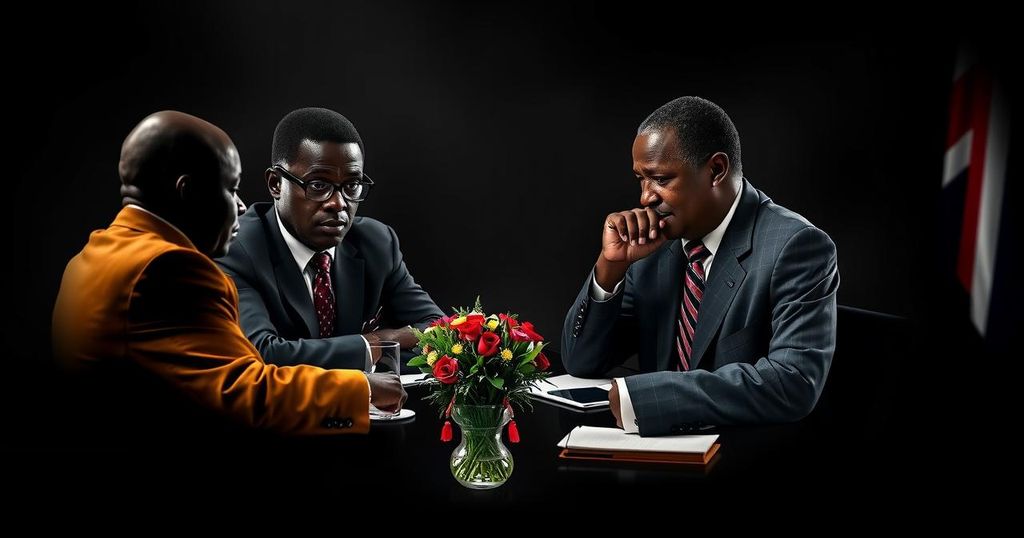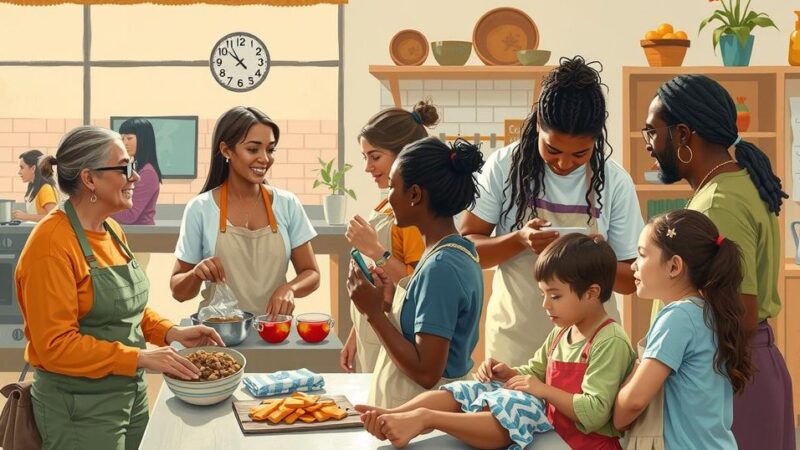South Sudan’s holdout groups have agreed to restart peace talks in Nairobi after expressing security grievances. Following discussions between President Ruto and key leaders in Juba, the Tumaini Initiative aims to mediate and include non-signatory factions, with support from Igad. Progress has been noted on various protocols essential for peace, amidst ongoing challenges and regional implications of violence.
The holdout groups in South Sudan, which are those that did not sign the 2018 peace agreement, have agreed to recommence peace negotiations in Nairobi following a prolonged period of concerns over security and dissatisfaction with previous discussions. This decision marks a significant step forward after President William Ruto of Kenya engaged with key South Sudanese leaders in Juba, including President Salva Kiir and First Vice President Riek Machar. President Ruto emphasized the importance of comprehensive dialogue to realize enduring peace in South Sudan. The negotiations, known as the Tumaini Initiative, initiated in May upon President Kiir’s request for Kenya to facilitate these discussions, are now set to receive support from the Intergovernmental Authority on Development (Igad), which was the original mediator of the 2018 peace accord. Inclusion of Igad is anticipated to bolster regional support for the renewed dialogue, which aims to integrate non-signatories to the peace agreement. The necessity of achieving peace and stability is widely acknowledged as essential for the economic recovery of South Sudan and the broader region. Following consultations that led to the withdrawal of Juba’s delegation, significant progress was made as the holdouts and government agreed on crucial protocols surrounding reconciliation, justice, power sharing, and long-term state rebuilding. Although negotiations have seen their challenges, noteworthy headway was achieved as three items were tentatively agreed on during discussions. The coalition government in Juba recently extended its mandate by two years due to insufficient preparations for the upcoming presidential elections. President Ruto, who previously facilitated the signing of commitments towards peace, appointed experienced mediators to assist in bridging divides between differing factions. There is cautious optimism as support and observer participation from a variety of holdout groups suggest a willingness to engage in the mediation led by Kenya, despite some groups being implicated in violence that affects trade routes from neighboring nations. The road ahead remains complex, but recent developments signal possibilities for a constructive resolution to long-standing conflicts in South Sudan.
The ongoing peace process in South Sudan stems from a history of conflict resulting in a fragile state characterized by political strife and humanitarian crises. The 2018 peace agreement aimed to unify opposing factions within the Transitional Government of National Unity (TGoNU) but excluded several groups that did not sign the accord, leading to continued disputes. Kenyan President William Ruto’s involvement as a mediator reflects regional interest in stabilizing South Sudan, given its implications for economic recovery and security in East Africa. The Tumaini Initiative represents a renewed effort to involve all parties in the pursuit of comprehensive and sustainable peace.
In summary, the resumption of peace talks in Nairobi by South Sudan’s holdout groups illustrates a pivotal moment in the peace process, facilitated by regional leaders seeking to reinforce dialogue and cooperation. The inclusion of significant mediators and the Intergovernmental Authority on Development is expected to enhance the prospects for a successful resolution to ongoing conflicts. As the South Sudanese parties move forward, the establishment of lasting peace remains crucial to the nation’s recovery and regional stability.
Original Source: www.theeastafrican.co.ke






